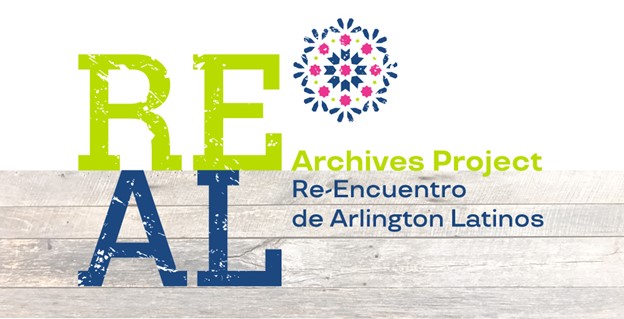September 15th marked the beginning of Hispanic Heritage Month, celebrated through the middle of October. We're taking this opportunity to share a CCCLH collection that highlights the history and culture of Arlington’s Latino communities – the Katharine Panfil Records of Edu-Futuro.
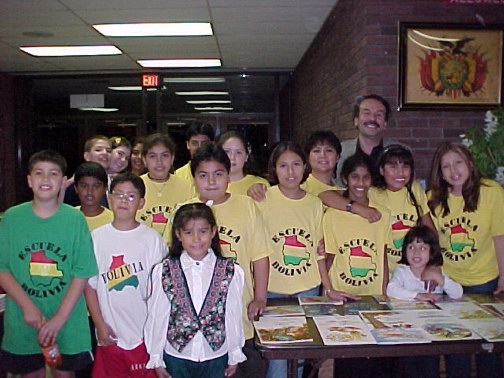
Students of Escuela Bolivia, ca. 2001.
In 1998, a group of Bolivian parents and teachers in Arlington came together to address a pressing concern that the children in their community would forget the language and traditions of the home they left behind.
They consulted with Bolivian Ambassador Marcelo Pérez Monasterios and met with Superintendent of Arlington Public Schools Robert G. Smith to collaborate on an academic enrichment program that could meet the needs of Arlington’s rapidly growing immigrant population. Thus, Escuela Bolivia (later renamed Edu-Futuro) was born.
Escuela Bolivia began as a Saturday morning academic program that provided Spanish and mathematics education to Latino students. It was also a space for students to learn about Bolivian culture, listen to Bolivian music, eat Bolivian foods, and meet other Bolivian children. The program supported parents as well, offering classes in English and computer skills.
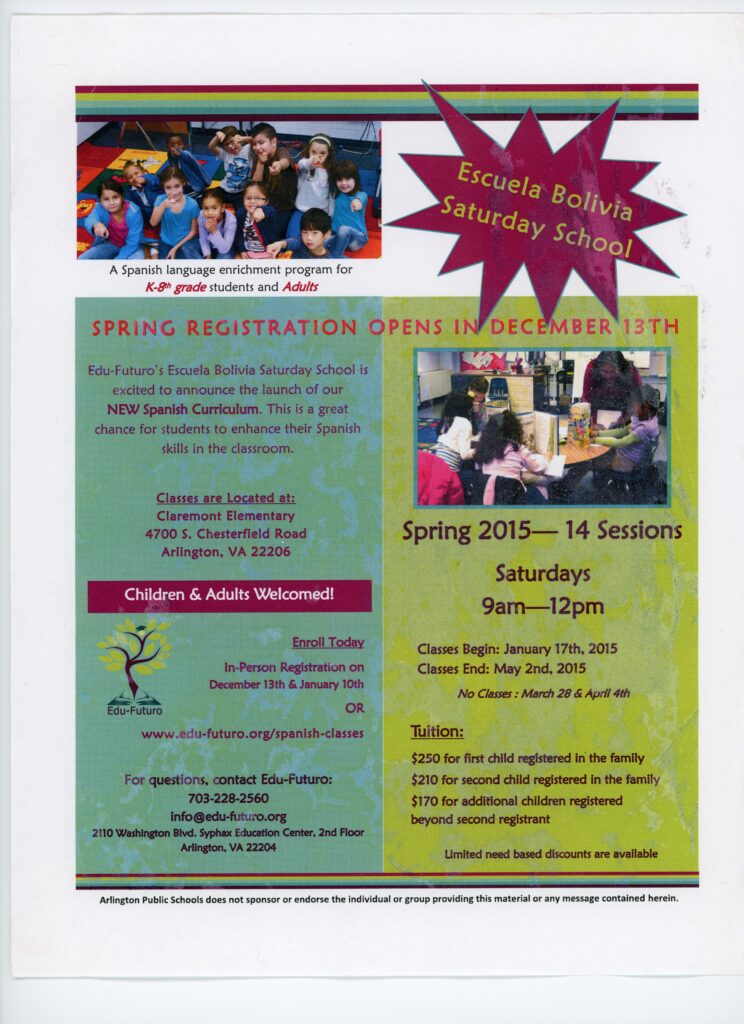
Promotional flyer for Escuela Bolivia Saturday School, 2015. From RG 394: Katherine Panfil Records of Edu-Futuro.
One of the founding members was educator and longtime Arlington resident Emma Violand-Sanchez. Born and raised in Cochabamba, Bolivia, she came to Lorton, VA, in 1961 at the age of 16 while her father was in political exile—part of the first major wave of immigration to Northern Virginia which occurred during the Bolivian National Revolution. When she enrolled as a senior at Mount Vernon High School in Alexandria, Violand-Sanchez was the only Latin American student.
She earned a four-year scholarship at Radford College, where she majored in foreign languages and education, graduating in 1966. After spending time teaching in Bolivia, Violand-Sanchez returned to the U.S. to pursue a doctorate from George Washington University. During her studies, Arlington Public Schools hired her as a bilingual resource teacher for Patrick Henry and Key Elementary School.
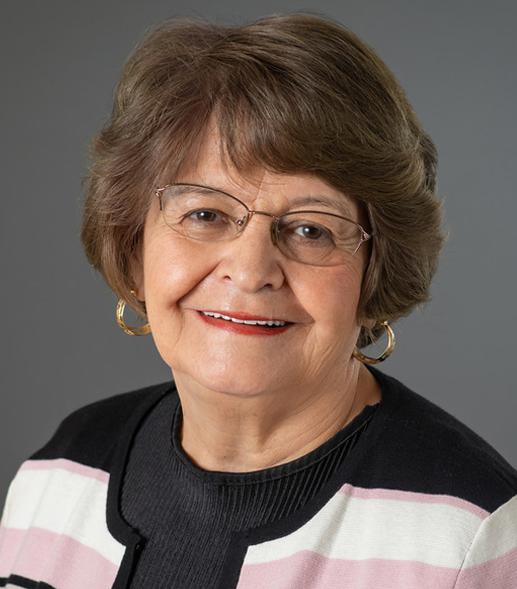
In an interview, Dr. Violand-Sanchez expressed her sense of belonging in Arlington: “I can be as American as apple pie as well as Bolivian as salteña.” Photo from Arlington Historical.
A lifelong proponent of bilingual education, Dr. Violand-Sanchez became supervisor of the school system’s English for Speakers of Other Languages/High-Intensity Language Training (ESOL/HILT) program. She was the first Latina teacher in Arlington and later became the first Latina member of the Arlington County School Board.
In the 1980s, Arlington’s Bolivian population continued to grow. As Bolivia suffered from hyperinflation, families sought better opportunities and a higher quality of life in the United States. Many who immigrated in the 1980s were of Quechua descent, most of them hailing from the Valle Alto region of Cochabamba, from towns like Tarata, Arbieto, Cliza, Punata and Tolata. By 2000, Arlington was home to the largest Bolivian community in the United States.
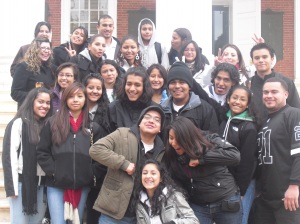
Students of Edu-Futuro, ca. 2012.
In this excerpt from a 1999 interview with Dr. Violand-Sanchez, she talks about the many Bolivian community organizations in Arlington at that time, in addition to the Escuela Bolivia program she helped create:
“...We have many community-based organizations that maybe many people don't know about. For example, in the Bolivian community we have several organizations such as the Bolivian Soccer League, we have the Bolivian Cultural Society, we have the Comité pro Bolivia that has more than twenty-four folkloric groups. For the National Day celebration of August 6 [Bolivia Independence Day], we may have as many as 6,000 Bolivians at Wakefield High School. We have a lot of regional committees from Bolivia such as the Comité pro Tarata, which is one region in Cochabamba that has their own group...”
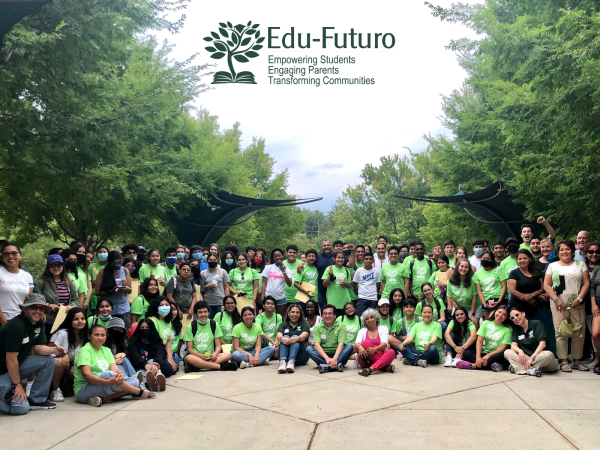
Students and teachers at Edu-Futuro, from the program website.
Over the years, Escuela Bolivia has continued to expand, becoming an important hub for both the Arlington and Fairfax communities. In 2011, they renamed the organization Edu-Futuro to better reflect the diverse communities they serve, while still maintaining close ties with the program’s Bolivian roots. Today, Edu-Futuro provides countless programs to enrich the education and culture of their students, from college prep to workforce development and civic engagement.
Sources:
- Emma Violand-Sanchez interview, 1990.
- Emma Violand-Sanchez interview, 1999.
- For Area Bolivians, Cherishing the Past, Looking to the Future - The Washington Post
- Only the Bridge Matters Now | Pulitzer Center
- RG 394: Katherine Panfil Records of Edu-Futuro
Call for Donations
The Charlie Clark Center for Local History (CCCLH) seeks community donations of a variety of materials to help document the rich, vibrant history of the Latino community in Arlington County. REAL, or el Re-Encuentro de Arlington Latinos, is a multi-year collecting initiative born out of a desire to include more documentation of the Latino community’s history in the CCCLH’s Arlington Community Archives. Community archives play a vital role in documenting all voices of a community. Learn more about how to participate here.
Help Build Arlington's Community History
The Charlie Clark Center for Local History (CCCLH) collects, preserves and shares resources that illustrate Arlington County’s history, diversity and communities. Learn how you can play an active role in documenting Arlington's history by donating physical and/or digital materials for the Center for Local History’s permanent collection.
Do you have a question about this story, or a personal experience to share?
Use this form to send a message to the Charlie Clark Center for Local History.
Center For Local History - Blog Post Message Form
Do you have a question about this story, or a personal experience to share? Use this form to send a message to the Center for Local History.
"*" indicates required fields
